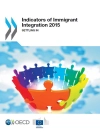The purpose of this ground-breaking book is to inspire the principle of innovation as a permeating program for Europe’s societies. After demonstrating early success from the realization of a single market and single currency, the European cooperation process is falling short of delivering much needed results in policy areas which are key for sustainable economic growth and employment, notably innovation policy. Written by authors involved in an independent tripartite High Level Group on EU innovation policy management, Revolutionising EU Innovation Policy analyses the principle causes and offers solutions in order to increase both efficacy and democratic accountability. Presenting the benefits of an overarching innovation policy, the authors draw attention to issues that have been overlooked by research and technology based approaches to innovation, for example culture and education. Importantly, the book examines the interplay between EU innovation policies and the demands of businesses, enterprises, and social and political organizations to fully deploy their innovation potential.
Jadual kandungan
List of Figures and Tables-. Notes on Contributors-. Preface (Klaus Gretschmann and Stefan Schepers)-. 1. Revisiting Innovation: Revolutionizing European Innovation by Means of an Innovation Ecosystem (Klaus Gretschmann and Stefan Schepers)-. 2. The Benefits and Rewards of Innovation Policies (Morten Rasmussen)-. 3. Icarus or Sisyphus: Innovation Between Hype, Rebuff and New Sobriety (Klaus Gretschmann)-. 4. Open Innovation and Clusters: Why Geographical Proximity Matters (Alberto di Mini and Marco Rossi)-. 5. Policy Coherence for Developing and Steering Innovation Ecosystems (Maria Luisa Poncela)-. 6. Funding and Financing- Fresh Thinking Required (Morten Rasmussen, Nicola Redi)-. 7. Collaborative Governance: A Promising Method for Innovation (Stefan Schepers)-. 8. Governance of the Alignment as a Basis for Renewing Innovation Policy (Andrew Kakabadse, Nada Korac-Kakabadse)-. 9. Towards True Regulatory Reform: How to Make EU Governance Innovation-fit (Christoph Bausch)-. 10. Developing Top Academic Institutions to Support Innovation (Jean-Claude Thoenig)-. 11. Cultural Diversity and Political Unity in the Innovation Ecosystem (Michel Praet, Tristan du Puy)-. 12. Beyond the Crystal Ball: Foresight (Stefan Schepers)-. 13. Match and Mold: The Crucial Role of Enterprises to Manage Innovation within the Innovation Ecosystem. A Case Study. (Egbert Lox)-. 14. Our Recommendations and their Effects: Tiptoeing in Unchartered Territory (Klaus Gretschmann and Stefan Schepers)-. 15. By Way of Conclusion (Klaus Gretschmann and Stefan Schepers)-. Index-.
Mengenai Pengarang
Klaus Gretschmann is Chairman of the High Level Group on Innovation Policy Management and the President of CATE (Competence and Advisory Team Europe). Formerly the Director-General of the Council of the European Union responsible for competitiveness, research, innovation, the single market and industrial policy, Klaus has also been the personal representative of Germany’s Chancellor for G8 summit preparation. A member of the European Academy of Sciences and Arts, he is the author of numerous publications.
Stefan Schepers is Secretary General of the High Level Group on Innovation Policy Management and Visiting Professor at Henley Business School, University of Reading, UK. Stefan is also the First Director General of the European Institute of Public Administration in Maastricht, The Netherlands and a Partner in EPPA, a Belgian management consultancy specialising in business-government-society interaction. A Member of the Senate of the European Academy of Sciences and Arts and Director of the Academy of Business in Society, he has published on management and EU affairs and recently co-edited Rethinking the future of Europe (2014).












